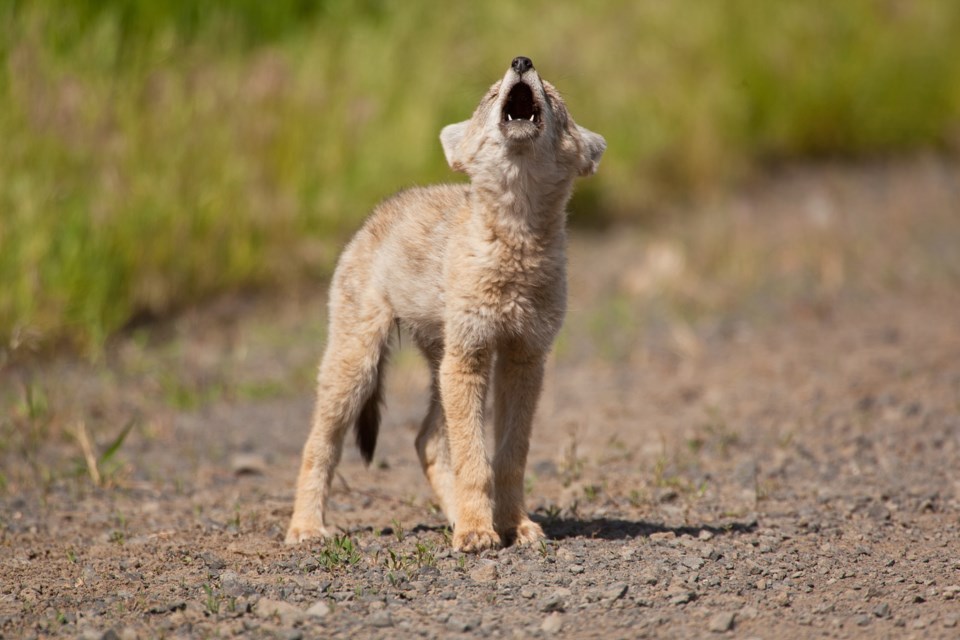With breeding season already started for the city's coyotes, the Vancouver parks board is warning residents to respect their canine neighbours and to "support long-term, peaceful coexistence."
Breeding season starts in January and their pups are born in the spring. During this period, and once the pups are born their behaviour can change as they become more active to seek food and protect their family.
"Typically only seen at dusk and dawn, they will often be spotted in the daytime and will behave more boldly to ensure their families are kept safe," says the board in a press release. "This could look like ‘escorting’ humans and pets away from their dens and standing their ground or acting more defensively if they perceive a threat."
It's likely people will see coyotes during this time of year, they add.
The parks board has some tips to ensure that "peaceful coexistence" with the coyotes:
- Don't leave food on the ground to attract any animals; food attractants are the leading cause of behavioural changes in coyotes
- So trails may be closed due to a coyote den nearby; respect that closure
- Keep all pets on leashes while out, except in explicitly designated off-leash areas
- Throw trash in trash bins (really, that's evergreen advice)
- If you see a coyote, give it space. If it approaches, act aggressive and big. Do not turn your back on a coyote.
While the parks board can't control coyote behaviour, it's doing things to curb issues from the human side, like monitoring for people feeding wildlife and fines of up to $500.
The parks board, Stanley Park Ecology Society and province are monitoring coyote activity, particularly in Vancouver's largest park. Through most of 2021, a series of coyote attacks in Stanley Park threatened human users of the park and resulted in a coyote cull. During the period of elevated conflicts, seven coyotes were killed with four more killed during the cull.
Since then conflicts have gone to essentially zero in the park.



